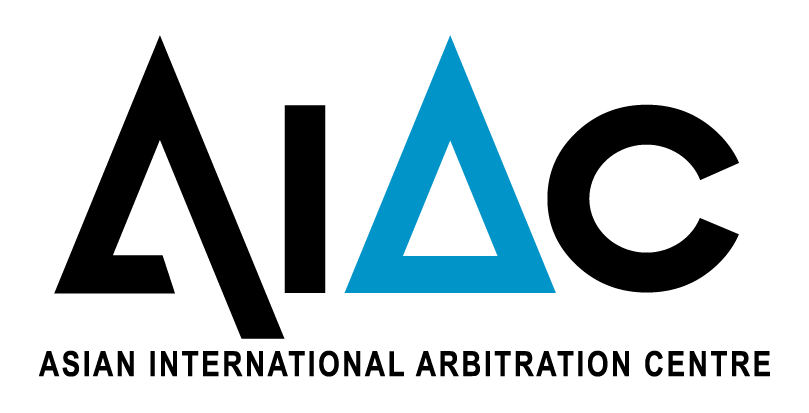ANNOUNCEMENT
June 21, 2014
The Star Sarawak – Chief Justice: Courts fast-tracking arbitration-related cases for early disposal
21 June 2014, KUCHING: There is a steady increase in the number of arbitration-related applications in the High Courts, which are generally disposed of within nine months from registration.
Chief Justice of Malaysia Tun Ariffin Zakaria said 34 such cases were registered in the High Courts in the first four months this year as compared to an average of 60 cases between 2010 and 2013.
“Recognising the importance of the supportive role of courts in the arbitration system, the Malaysian courts have made vast improvements in recent years to ensure that arbitration-related cases are disposed of without undue delay.
“Challenges to arbitration awards are fast-tracked for early disposal. Cases on arbitration awards are generally heard within three months and disposed of within nine month from date of registration,” he added in a keynote address at the inaugural international arbitration conference here yesterday.
Themed “Reflecting the past, building the future”, the three day-event hosted by the Kuala Lumpur Regional Centre for Arbitration (KLRCA), was attended by nearly 200 delegates from across the world.
Ariffin said Asia’s arbitration landscape had changed dramatically in recent years, and that in the past few years, there was a steady growth in arbitration in Asian arbitration centres that outshone even the western counterparts.
“While the ICC’s International Court of Arbitration which is based in Paris remains the pioneer in modern international arbitration, arbitral institutions in Asia are rapidly gaining on their predecessor.
“In 2012, 759 requests for arbitration were filed with the ICC Court, showing a slight decrease from the 796 which were filed in 2011.
“Meanwhile, the number of cases has surged at the KLRCA where a total of 156 cases were handled in 2013, up 16% from 135 in 2012.”
The Chief Justice attributed the positive growth of arbitration in Malaysia to several factors, including the increased inter-dependence between countries in global trade, the Malaysian government’s initiatives in passing the Arbitration (Amendment) Act 2011, which addressed the lacunas in the Arbitration Act 2005, as well as the arbitration supportive stance demonstrated by the judiciary.
Other factors are improved infrastructure and services for arbitration and active promotion of arbitration by various arbitration institutions and professional organisations, particularly KLRCA, the Chartered Institute of Arbitrators, Malaysian Institute of Arbitrators and Bar Council.
Ariffin said the KLRCA would soon move into the heritage Sulaiman Building, equipped with a world-class state-of-the-art arbitral facility, with 19 hearing rooms, 22 breakout rooms, a business centre, a special ADR and a construction law library.
“In recognition of the distinct growth of arbitration in Asia, directly related to the economic growth in the region and increase in case flow in Malaysia, 39 Essex Street, a long established barristers chambers based in London, will set up an office in the Sulaiman Building.”
Ariffin said one of the main concerns for parties in international arbitration had always been the efficiency of the enforcement process — how quickly and reliably an arbitral award would translate into a tangible outcome without the risk of additional costly litigation and/or the rish of courts refusing to enforce the award.
He said there were still some jurisdictions declining to accept he international practice of international arbitration.
“It was long considered that arbitration entailed a usurpation of judicial powers. However, as we are now in the golden age of arbitration where judges no longer view arbitration as a form of ‘competition’ but rather as a method of dispute resolution mechanism which complements the judicial process.
“It is inevitable that with the increased use of international arbitration, arbitrators should have more power to decide on controversies and more autonomy will be afforded to them.”
The Chief Justice said arbitral institutions must, while recognising the importance of party autonomy, ensured that they continue to play an important role in enhance arbitral accountability.
He said while this could be done in many ways, the most important being the scrutiny of arbitrator’s conduct and ethics.
More, he said, must be done by institutions to enhance transparency in matters relating to arbitrator’s conduct and to ensure that issues of confidentiality did not mask the need for continued scrutiny of the integrity of the arbitral process.
Ariffin commended KLRCA, in acknowledging the vital role Malaysia played in Islamic banking, for coming up with the i-Arbitration Rules, which provided for arbitration of disputes arising from commercial arbitration premised on Islamic principles.
The KLRCA, which was the first arbitration centre in Asia Pacific Region set up in 1978 under the Asian-African Legal Consultative Organisation (AALCO), currently has some 700 arbitrators, most of them of foreign nationalities.
Original Source
http://www.thestar.com.my/News/Community/2014/06/21/Without-undue-delay-Chief-Justice-Courts-fasttracking-arbitrationrelated-cases-for-early-disposal/
Credit : The Star Sarawak Edition ( Jack Wong)

